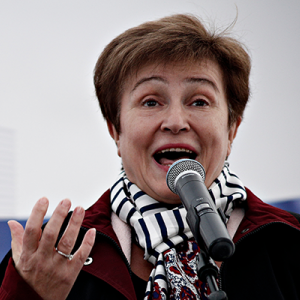By Nick Mann | 2 January 2013
US President Barack Obama has welcomed the political deal reached last night that avoids the combination of automatic spending cuts and tax increases known as the ‘fiscal cliff’.
Both Houses of Congress passed a package of measures that confines the across-the-board income tax increases due to kick in yesterday to the wealthiest 2% of the US population, those earning more than $400,000 a year. It also extends tax credits for poor and middle-class families by a further five years, as well as prolonging unemployment benefits by a further year.
A $109bn bundle of automatic spending cuts also scheduled to take effect has been deferred for two months, to allow further discussions on a long-term deficit reduction plan.
Speaking after the House of Representatives followed the Senate in passing the deal, Obama said: ‘Thanks to the votes of Democrats and Republicans in Congress, I will sign a law that raises taxes on the wealthiest 2% of Americans while preventing a middle-class tax hike that could have sent the economy back into recession and obviously had a severe impact on families all across America.’
He added: ‘But I think we all recognise this law is just one step in the broader effort to strengthen our economy and broaden opportunity for everybody. The fact is the deficit is still too high, and we're still investing too little in the things that we need for the economy to grow as fast as it should.’
The tax increases in the deal are expected to raise $620bn in revenue. The president said the deficit would be reduced further when Congress agreed how to address the automatic spending cuts now postponed until March.
‘But we can't simply cut our way to prosperity,’ he said. ‘Cutting spending has to go hand-in-hand with further reforms to our tax code so that the wealthiest corporations and individuals can't take advantage of loopholes and deductions that aren't available to most Americans.
‘And we can't keep cutting things like basic research and new technology and still expect to succeed in a twenty-first century economy. So we're going to have to continue to move forward in deficit reduction, but we have to do it in a balanced way, making sure that we are growing even as we get a handle on our spending.’
Obama also warned Congress against any delay in approving the increase in the US debt ceiling that is expected to be required in February or March. In August 2011, political deadlock over raising the borrowing limit led to market concerns that the US would default.
‘While I will negotiate over many things, I will not have another debate with this Congress over whether or not they should pay the bills that they’ve already racked up through the laws that they passed,’ he said.
‘Let me repeat: We can't not pay bills that we've already incurred. If Congress refuses to give the United States government the ability to pay these bills on time, the consequences for the entire global economy would be catastrophic – far worse than the impact of a fiscal cliff.’
The Republican House speaker, John Boehner, said the party would use its majority in the House to hold the president accountable for the ‘balanced approach’ he had promised. This would mean ‘meaning significant spending cuts and reforms to the entitlement programs that are driving our country deeper and deeper into debt’.
He added: ‘Without meaningful reform of entitlements, real spending controls, and a fairer, cleaner tax code, our debt will continue to grow, and our economy will continue to stumble.’











